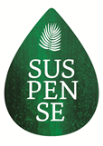 |
Wageningen University funded through its interdisciplinary research and education fund (INREF) a project called: Towards Environmentally Sustainable and Equitable Palm Oil: Promoting sustainable pathways by exploring connections between flows, networks and systems at multiple levels (2012-2018). The two main objectives of this five year research program were (1) to identify sustainable pathways for the production, processing and governing of palm oil and (2) to enable different stakeholders to contribute to a more environmentally sustainable and equitable palm oil sector in a science-based and concerted way. Eight PhD-students performed a multi-disciplinary and multi-level research of the palm oil commodity chain, with senior researchers and a post-doc contributing to integration at program level. Research activities of the entire production chain took place in Indonesia and Thailand, but also included analysis of transboundary commodity flows and global governance arrangements and how these contribute to more or less environmentally sustainable and equitable palm oil. Partners were local universities and Oxfam-Novib. Within the PPS group, Siriluk Somnuek conducted her PhD research on oil palm expansion in Northern Thailand where climate and infrastructure are not conducive for oil palm sector development. Sakti Hutabarat conducted his PhD research on costs and benefits of certification in Riau, Indonesia. Master students and BSc students studied a wide range of topics, including farmer organisations which are prerequisites for certification, water balances in Northeast Thailand. Project output:
|
Begin
2012
End
2018
Crop
Oil palm
Description
